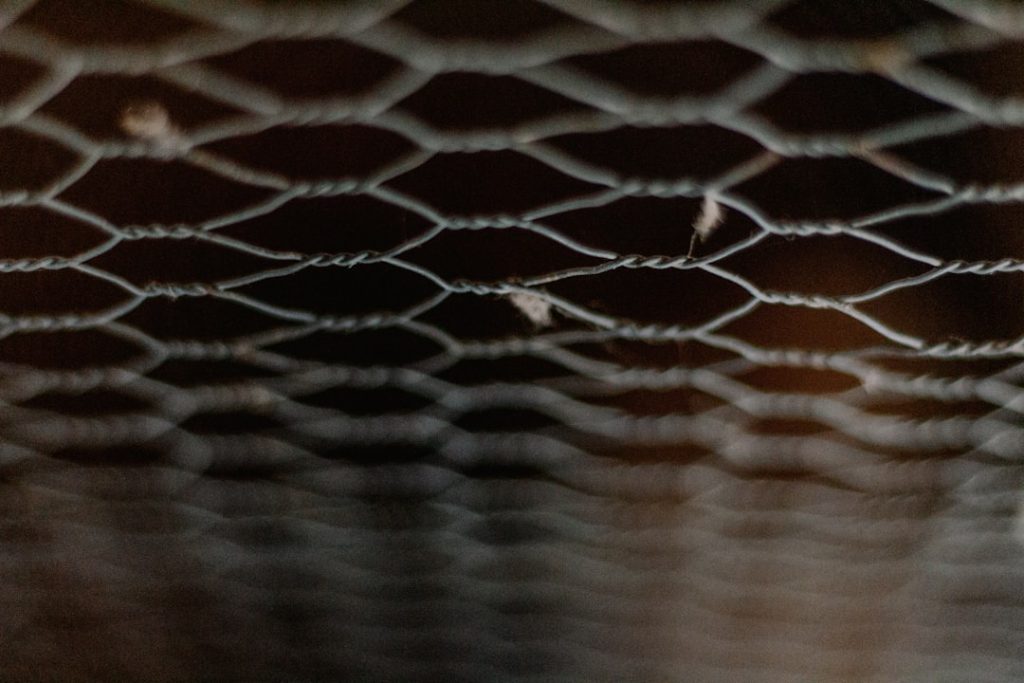Chickens are social creatures with innate foraging instincts and a propensity for exploration. Their curious nature and easily startled disposition can lead them to wander into undesired areas. Understanding chicken behavior is essential for preventing such occurrences.
Once chickens establish a routine of accessing a particular area, they tend to repeat this behavior, making prompt intervention crucial to avoid recurring issues. Chickens exhibit territorial behavior and may display aggression towards perceived threats, including other animals or humans. This territoriality can result in chickens venturing into unwelcome spaces like gardens or neighboring properties.
By comprehending chicken behavior, one can better anticipate their movements and implement proactive measures to restrict access to unwanted areas. Furthermore, knowledge of chickens’ natural instincts and behaviors facilitates the development of effective strategies for containing them within designated spaces.
Table of Contents
- 1 Implementing Physical Barriers
- 2 Using Natural Deterrents
- 3 Creating Distractions
- 4 Establishing Boundaries
- 5 Training and Conditioning
- 6 Seeking Professional Help
- 7 FAQs
- 7.1 What are some effective ways to keep chickens off the garden?
- 7.2 Are there any plants that can repel chickens from the garden?
- 7.3 Is it possible to train chickens to stay out of the garden?
- 7.4 What are some common mistakes to avoid when trying to keep chickens off the garden?
- 7.5 Are there any legal considerations to keep in mind when keeping chickens off the garden?
Key Takeaways
- Chickens are naturally curious and will explore their surroundings, including areas they are not supposed to be in.
- Physical barriers such as fences and netting can effectively keep chickens out of certain areas.
- Natural deterrents like citrus peels, vinegar, and hot pepper can be used to discourage chickens from entering specific areas.
- Creating distractions with toys, treats, and other objects can redirect chickens’ attention away from restricted areas.
- Establishing clear boundaries and consistently reinforcing them can help chickens understand where they are allowed to go.
- Training and conditioning chickens through positive reinforcement can help them learn to stay within designated areas.
- Seeking professional help from animal behaviorists or trainers may be necessary for persistent chicken behavior issues.
Implementing Physical Barriers
Fences and Gates: A Simple yet Effective Solution
One effective way to keep chickens out of unwanted areas is by implementing physical barriers. This can include installing fences or gates to prevent chickens from accessing certain areas. Fences should be tall enough to prevent chickens from flying over them, and gates should be securely closed to prevent chickens from pushing them open.
Chicken Wire and Mesh Fencing: A Flexible Option
Additionally, using chicken wire or mesh fencing can help keep chickens out of specific areas while still allowing them to roam freely in other parts of the property.
Netting and Covers: Protecting Vulnerable Areas
Another physical barrier that can be effective in keeping chickens out of unwanted areas is using netting or covers to protect gardens or other vulnerable areas. This can help prevent chickens from accessing plants or crops that they may be inclined to forage on.
By implementing physical barriers, you can create a clear boundary that prevents chickens from entering certain areas while still allowing them to roam freely in other parts of the property.
Using Natural Deterrents

In addition to physical barriers, natural deterrents can also be effective in keeping chickens out of unwanted areas. One natural deterrent is using predator decoys, such as fake owls or hawks, to scare off chickens. Chickens are naturally wary of predators, so the presence of these decoys can deter them from entering certain areas.
Additionally, using strong-smelling plants or herbs, such as lavender or mint, can also deter chickens from entering specific areas. Chickens have a strong sense of smell, and certain scents can be off-putting to them. Another natural deterrent that can be effective in keeping chickens out of unwanted areas is using reflective surfaces, such as mirrors or shiny objects, to disorient and scare off chickens.
Chickens are easily startled by sudden movements or unfamiliar objects, so using reflective surfaces can help deter them from entering certain areas. By using natural deterrents, you can create an environment that is unappealing to chickens and discourages them from entering unwanted areas.
Creating Distractions
Another effective strategy for keeping chickens out of unwanted areas is by creating distractions that redirect their attention elsewhere. This can include providing alternative sources of food and entertainment to keep chickens occupied and prevent them from venturing into unwanted areas. For example, setting up a designated feeding area with a variety of treats and toys can help keep chickens engaged and less inclined to explore other parts of the property.
Additionally, creating designated play areas with obstacles and toys can also help keep chickens entertained and prevent them from wandering into unwanted areas. By creating distractions that capture the attention of chickens, you can redirect their focus away from areas where they are not welcome. This can help prevent them from causing damage or disturbances in these areas.
Establishing Boundaries
Establishing clear boundaries is essential in preventing chickens from entering unwanted areas. This can include using visual markers, such as flags or signs, to clearly demarcate areas that are off-limits to chickens. By establishing clear boundaries, you can communicate to the chickens where they are allowed to roam and where they are not welcome.
This can help prevent misunderstandings and conflicts between chickens and property owners. Another way to establish boundaries is by using scent markers to delineate specific areas. Chickens have a strong sense of smell, and using scents that are unappealing to them can help discourage them from entering certain areas.
For example, using citrus peels or vinegar around the perimeter of a garden can help deter chickens from foraging on plants. By establishing clear boundaries, you can effectively communicate to the chickens where they are allowed to roam and prevent them from entering unwanted areas.
Training and Conditioning

Positive Reinforcement Techniques
By rewarding chickens for staying within designated areas, you can encourage them to respect boundaries and avoid venturing into unwanted areas. This approach helps chickens understand what is expected of them and promotes good behavior.
Conditioning Techniques
Conditioning techniques, such as using noise or motion-activated deterrents, can also help train chickens to avoid certain areas. For example, using motion-activated sprinklers or sound devices can startle chickens when they approach unwanted areas, conditioning them to avoid these areas in the future.
Effective Communication
By using training and conditioning techniques, you can effectively communicate to the chickens where they are allowed to roam and prevent them from entering unwanted areas. This approach helps maintain a safe and healthy environment for your chickens while also protecting your property.
Seeking Professional Help
If all else fails, seeking professional help may be necessary in preventing chickens from entering unwanted areas. Professional animal behaviorists or chicken experts can provide valuable insights and strategies for addressing the issue. They can assess the behavior of the chickens and provide tailored recommendations for preventing them from entering unwanted areas.
Additionally, professional help may be necessary if the issue is complex or persistent. Professional animal behaviorists have the expertise and experience to address challenging behavior issues and provide effective solutions for keeping chickens out of unwanted areas. By seeking professional help, you can access specialized knowledge and resources that can help resolve the issue effectively.
In conclusion, understanding the behavior of chickens is crucial in preventing them from entering unwanted areas. By implementing physical barriers, using natural deterrents, creating distractions, establishing boundaries, training and conditioning, and seeking professional help, you can effectively address the issue and keep chickens out of specific areas. By taking proactive measures and using effective strategies, you can create an environment that is conducive to both the well-being of the chickens and the protection of your property.
If you’re looking for tips on how to keep chickens off your garden, you might also be interested in learning about different types of chicken coops. Check out this article on 10 essential features for a chicken coop to ensure that your chickens have a comfortable and secure living space.
FAQs
What are some effective ways to keep chickens off the garden?
Some effective ways to keep chickens off the garden include using physical barriers such as fences or chicken wire, using natural deterrents like citrus peels or coffee grounds, and providing alternative areas for the chickens to forage.
Are there any plants that can repel chickens from the garden?
Yes, there are certain plants that can repel chickens from the garden, such as marigolds, lavender, and mint. These plants have strong scents that chickens find unpleasant.
Is it possible to train chickens to stay out of the garden?
Yes, it is possible to train chickens to stay out of the garden by using positive reinforcement, such as providing treats in designated areas away from the garden, and consistently redirecting them when they attempt to enter the garden.
What are some common mistakes to avoid when trying to keep chickens off the garden?
Some common mistakes to avoid when trying to keep chickens off the garden include using harmful chemicals or pesticides, neglecting to provide alternative foraging areas for the chickens, and not maintaining physical barriers effectively.
Are there any legal considerations to keep in mind when keeping chickens off the garden?
It is important to check local ordinances and regulations regarding the keeping of chickens and the use of physical barriers in residential areas. Some areas may have specific rules about fencing and animal control.
Meet Walter, the feathered-friend fanatic of Florida! Nestled in the sunshine state, Walter struts through life with his feathered companions, clucking his way to happiness. With a coop that’s fancier than a five-star hotel, he’s the Don Juan of the chicken world. When he’s not teaching his hens to do the cha-cha, you’ll find him in a heated debate with his prized rooster, Sir Clucks-a-Lot. Walter’s poultry passion is no yolk; he’s the sunny-side-up guy you never knew you needed in your flock of friends!







